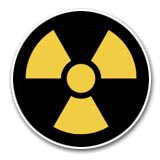U.S. News: A New Era for U.S., Russia, and Nuclear Arms

Major U.S. news stories, from health-care reform to "Don't Ask, Don't Tell"
Arizona Immigration Law Pushes the Limit | Health Care Reform: Years in the Making, Still Doesn't Satisfy | Landmark Financial Regulation Bill | Midterm Elections | The Official End to the War in Iraq | Passing the Buck on "Don't Ask, Don't Tell" | Same-Sex Marriage Ban Temporarily Overturned in California | The Supreme Court: Personnel Changes & Major Decisions | Tea Party Victories A New Era for U.S., Russia, and Nuclear ArmsThe United States and Russia ushered in what they dubbed a new era in nuclear arms control in April, after President Obama and Russian president Medvedev signed an arms reduction treaty and agreed to act in a united fashion against the threat of Iran's nuclear program. The pact, called the New Start, had each country promise to scale back their nuclear arsenals: the U.S. and Russia must lower the limit on deployed strategic warheads and launchers by 25% and 50%, respectively. They will also implement a new inspection regime. Because of resistance among Republicans in Congress, who called the verification provisions inadequate and who were generally unwilling to compromise with Democrates, it was unclear near the end of the Congressional session wheter the treaty would be approved. In late December, Russian foreign minister Sergey Lavrov warned the Senate that Russia would not approve an amended treaty, and on December 22, the Senate Democrats and Republicans finally came to an agreement. In a 71 to 26 vote, the Senate approved the nuclear arms treaty, President Obama's most important foreign policy victory to date. The Russian Parliament will also have to approve the treaty, but the Parliament heavily favors its country's president, and the approval will definitely happen. |
- More from 2010 Year in Review









